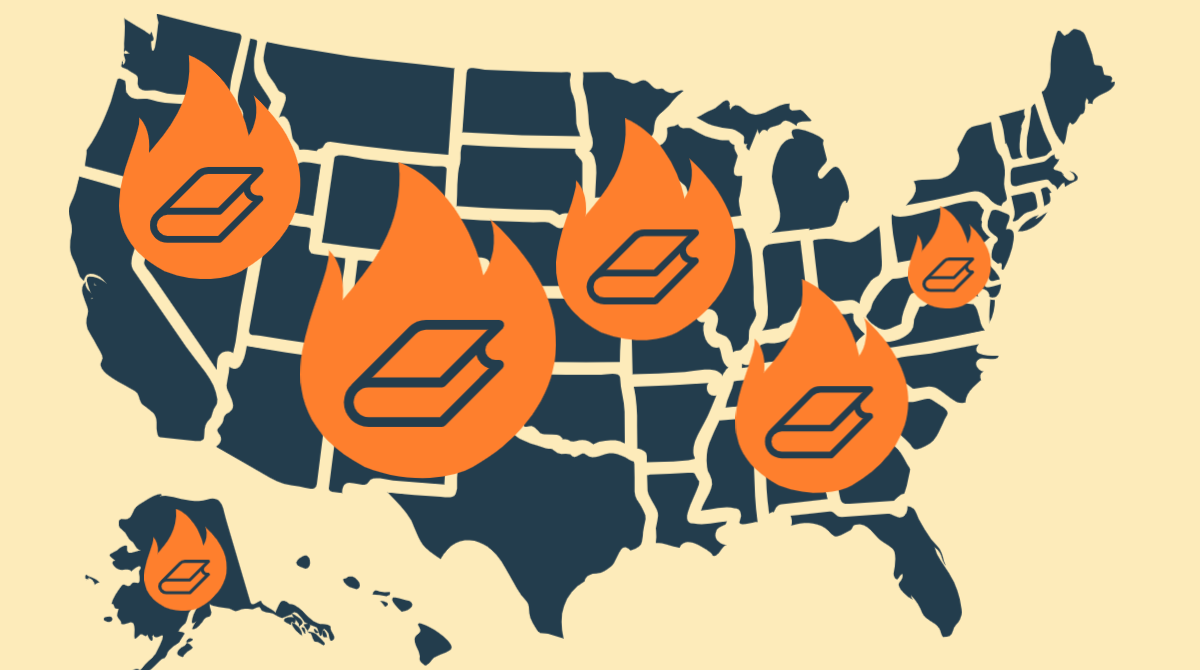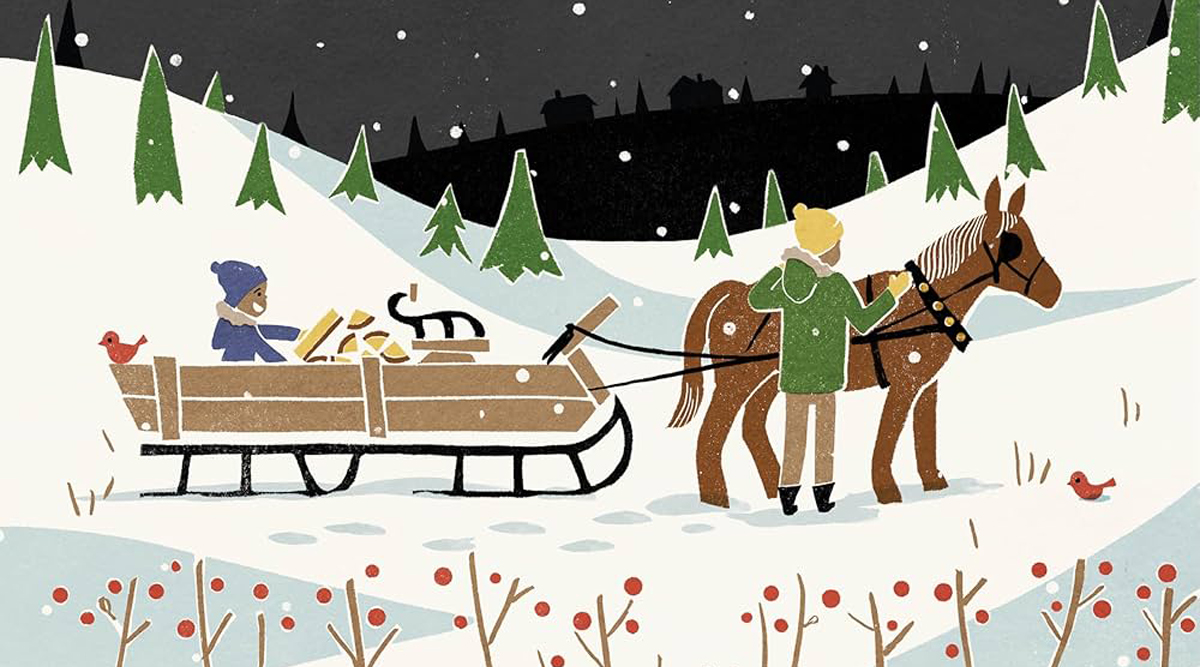Libraries and schools across the country are experiencing unprecedented levels of attempts to ban or remove books from their shelves. I Love Libraries will continue to raise awareness by highlighting attempts to censor library materials, as well as efforts by librarians, parents, students, and concerned citizens to push back against them. This report includes news from Missouri, Tennessee, Pennsylvania, and a look at Southern states that have ordered the removal of books related to transgender identity from public libraries.
Become a Supporter
Missouri court strikes down law that pushed libraries to remove hundreds of books
A court in Jackson County, Missouri, struck down a state law criminalizing school employees for supplying “sexually explicit material” to students, ruling it unconstitutionally vague and overbroad, reports The Missouri Independent.
Jackson County Circuit Court struck down the law on November 17. Passed by Missouri lawmakers in 2022, the now-void law expanded the state’s regulations on pornography to create the offense of providing explicit sexual material to a student. It applied only to those “affiliated with a public or private elementary or secondary school in an official capacity.”
The law is part of a larger trend placing higher scrutiny on what books are offered by libraries and schools. In Missouri, efforts earlier this year to place new restrictions on digital libraries and expand the officials who could face prosecution were debated but did not pass.
The state has long prohibited people from giving pornographic material to minors. The decades-old law uses a different definition of pornography, one that has been held up in courts as only prohibiting speech unprotected by the First Amendment. The now-void 2022 law extended beyond that precedent and impeded free speech rights, the plaintiffs’ attorneys argued.
The Missouri Association of School Librarians and Missouri Library Association, represented by Stinson LLP and the ACLU of Missouri, challenged the law in 2023 after “hundreds” of titles were removed from shelves.
“This is a real victory for all library professionals who are trained to select age-appropriate, developmentally appropriate material for students in both public and private schools,” Gillian Wilcox, the ACLU of Missouri’s director of litigation, told The Independent. “It is a real insult to their training and professionalism for the government to think that it knows better what books belong in those schools, and it’s an insult to parents as well.”
Federal judge won’t block Tennessee district book bans before trial
A federal judge has declined to block book bans at one of Tennessee’s largest school districts before a full trial next year, reports the Tennessee Lookout.
In April, three high school students sued the Rutherford County Board of Education after it pulled more than 140 books from library shelves in accordance with a state obscenity law that prohibits any school material that “in whole or in part contains descriptions or depictions of sexual excitement, sexual conduct, excess violence, or sadomasochistic abuse” or is “patently offensive.”.
Represented by the American Civil Liberties Union, the students argued the book bans violated their First Amendment rights and disadvantaged students by blocking them from accessing “crucial, acclaimed, and historical works.”
Judge Eli Richardson denied a preliminary injunction, declining to block the district from limiting access to books until the full trial plays out and indicating that the defendants have an uphill battle in the case.
“Here, the Board (or for that matter the State writ large) has not prohibited students from reading the books or acquiring them elsewhere; instead it has merely opted not to carry them on school library bookshelves,” Richardson wrote.
The Rutherford County case, which also includes PEN America as a plaintiff, is the first legal challenge to Tennessee’s expanded school book statute in 2024 that led to the removal of hundreds of books from school shelves.
Rutherford County book removals include “Beloved” and “Catch-22,” both of which were recommended in advanced placement literature classes curricula in previous years. Other removals include “The Perks of Being a Wallflower” and “Wicked.”
A full trial in the case is not expected to begin until next fall.
New Report Shows Right-Wing School Boards Responsible for Book Banning, Censorship and Anti-LGBTQ Policies Across Pennsylvania
The past decade has seen a rise in school boards adopting policies that censor books, squelch anti-racist policies, limit student expression, and step on the rights of LGBTQ students, and a new report looks at how widespread the behavior is in Pennsylvania districts, reports the Bucks County (Penn.) Beacon.
School Board Spotlight (SBS) is a project of the Pipeline Education Fund that “empowers grassroots organizations with information on school board members, districts, and populations served so they know where to focus their efforts around school boards in a strategic and impactful way.” SBS is a response to the rise of repressive school policies that are part of the right-wing culture panic wave that has been sweeping the nation.
“Partisan school board members are implementing dangerous agendas across [Pennsylvania] that are directly at odds with the best interests of Pennsylvania students and parents,” said Denise Feriozzi, Executive Director of the Pipeline Education Fund. “The shocking prevalence of these policies across Pennsylvania should concern parents who just want to see their children learn and thrive.”
The analysis was based on 193 of Pennsylvania’s 500 school districts and looked at board minutes and policy changes since 2023. The database flags districts for book bans, anti-LGBTQ policies, and censorship.
“Students deserve inclusive schools where they can learn without being subjected to partisan politics or discriminatory practices,” said Kristina Moon, Education Law Center-PA senior attorney. “These policies not only limit educational opportunities but also put vulnerable students, including LGBTQ+ youth, at serious risk. And school leaders need to be aware that both federal and state courts have found schools liable for discriminating against students on the basis of gender identity.”
Southern states ban transgender books from young adult and children’s sections in libraries
Multiple southern states have recently ordered the removal of books related to transgender identity from youth and even teen sections in public libraries, reports The Advocate.
The Alabama Public Library Service Board of Directors approved a rule on November 20 that orders the removal of content related to “transgender procedures, gender ideology or the concept of more than two biological genders” from children’s and young adult sections across the more than 200 libraries in its system. The directive bans all “sexually explicit or other material deemed inappropriate” from youth sections, though it does not define sexually explicit content.
The vote was held on Transgender Day of Remembrance, a day specifically dedicated to honoring trans people who have lost their lives to violence.
In Tennessee, Secretary of State Tre Hargett, a Republican, sent a letter to all 181 libraries in the Tennessee Regional Library System last month demanding the removal of books that contain “gender ideology” or diversity, equity, and inclusion from children’s and young adult sections. He threatened to withhold funding from libraries that did not comply.
Take action
Alarmed by the escalating attempts to censor books? Here are six steps you can take now to protect the freedom to read.
- Follow news and social media in your community and state to keep apprised of organizations working to censor library or school materials.
- Show up for library workers at school or library board meetings and speak as a library advocate and community stakeholder who supports a parent’s right to restrict reading materials for their own child but not for all
- Help provide a safety net for library professionals as they defend intellectual freedom in their communities by giving to the LeRoy C. Merritt Humanitarian Fund.
- Educate friends, neighbors, and family members about censorship and how it harms communities. Share information from Banned Books Week.
- Join the Unite Against Book Bans movement and visit our Fight Censorship page to learn what you can do to defend the freedom to read in your community
- Become a Supporter of the American Library Association and help ALA fight for libraries and everyone’s freedom to read.
Subscribe to the I Love Libraries newsletter! You’ll get news from the library world, advocacy updates, author interviews, book lists, and more delivered to your inbox every month.




